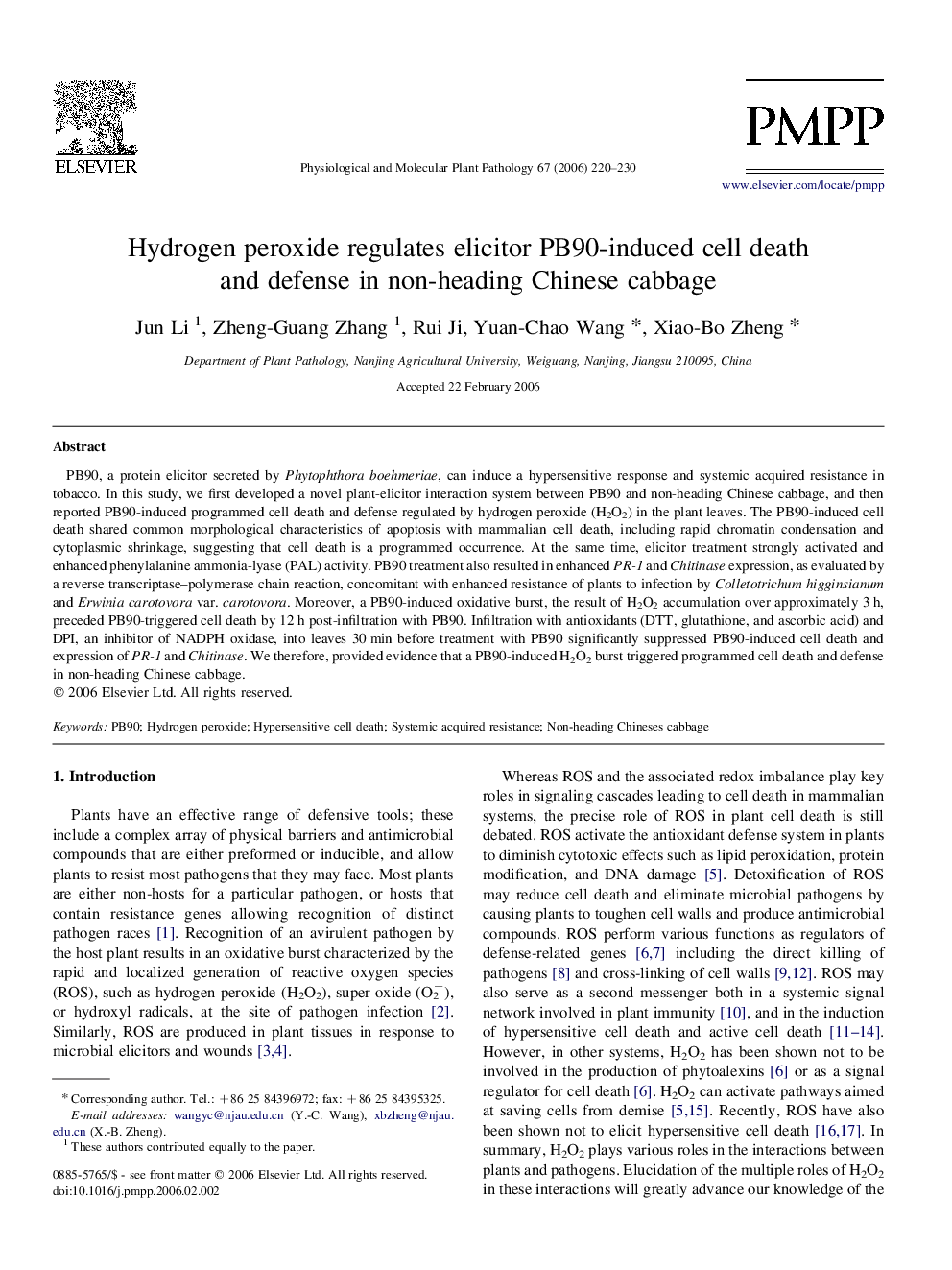| Article ID | Journal | Published Year | Pages | File Type |
|---|---|---|---|---|
| 2836845 | Physiological and Molecular Plant Pathology | 2006 | 11 Pages |
PB90, a protein elicitor secreted by Phytophthora boehmeriae, can induce a hypersensitive response and systemic acquired resistance in tobacco. In this study, we first developed a novel plant-elicitor interaction system between PB90 and non-heading Chinese cabbage, and then reported PB90-induced programmed cell death and defense regulated by hydrogen peroxide (H2O2) in the plant leaves. The PB90-induced cell death shared common morphological characteristics of apoptosis with mammalian cell death, including rapid chromatin condensation and cytoplasmic shrinkage, suggesting that cell death is a programmed occurrence. At the same time, elicitor treatment strongly activated and enhanced phenylalanine ammonia-lyase (PAL) activity. PB90 treatment also resulted in enhanced PR-1 and Chitinase expression, as evaluated by a reverse transcriptase–polymerase chain reaction, concomitant with enhanced resistance of plants to infection by Colletotrichum higginsianum and Erwinia carotovora var. carotovora. Moreover, a PB90-induced oxidative burst, the result of H2O2 accumulation over approximately 3 h, preceded PB90-triggered cell death by 12 h post-infiltration with PB90. Infiltration with antioxidants (DTT, glutathione, and ascorbic acid) and DPI, an inhibitor of NADPH oxidase, into leaves 30 min before treatment with PB90 significantly suppressed PB90-induced cell death and expression of PR-1 and Chitinase. We therefore, provided evidence that a PB90-induced H2O2 burst triggered programmed cell death and defense in non-heading Chinese cabbage.
